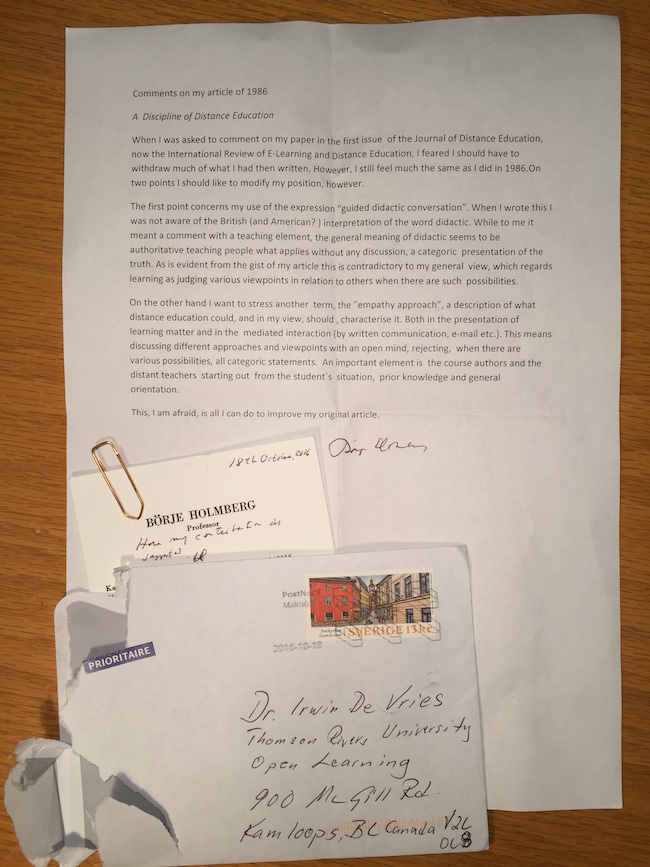
Since the early 1970s Börje Holmberg has worked in distance education, researching and publishing widely in the field. His theory of concept of the “guided didactic conversation” has been a staple among countless distance education scholars and practitioners since then.
Born in 1924, Holmberg was not easy to track down. However, working through through degrees of separation first in Alberta and then in Germany, we obtained a postal address in Sweden. To our surprise and delight, some weeks later his reply arrived, delivered in an airmail envelope with a beautiful stamp, his response, and his card attached with the words “Here is my contribution as suggested” written on it.

In his article in the inaugural edition of this journal he discussed his thoughts on guided didactic conversations and how they enhance learning in distance education. Thirty years later, Holmberg provides our readers with a brief and poignant update to that article. We are very pleased to print Börje Holmberg’s contribution for our special anniversary issue.

This work is licensed under a Creative Commons Attribution 3.0 Unported License.
VOL. 32, No. 2 2016
A Discipline of Distance Education
When I was asked to comment on my paper in the first issue of the Journal of Distance Education, now the International Review of E-Learning and Distance Education, I feared I should have to withdraw much of what I had then written. However, I still feel much the same as I did in 1986. On two points I should like to modify my position, however.
The first point concerns my use of the expression “guided didactic conversation”. When I wrote this I was not aware of the British (and American?) interpretation of the word didactic. While to me it meant a comment with a teaching element, the general meaning of didactic seems to be authoritative teaching people what applies without any discussion, a categorical presentation of the truth. As is evident from the gist of my article this is contradictory to my general view, which regards learning as judging various viewpoints in relation to others when there are such possibilities.
On the other hand, I want to stress another term, the “empathy approach”, a description of what distance education could, and in my view, should, characterize both in the presentation of learning matter and in the mediated interaction (by written communication, e-mail, etc.). This means discussing different approaches and viewpoints with an open mind, rejecting, when there are various possibilities, all categorical statements. An important element is the course authors and the distant teachers starting out from the student’s situation, prior knowledge and general orientation.
This, I am afraid, is all I can do to improve my original article.